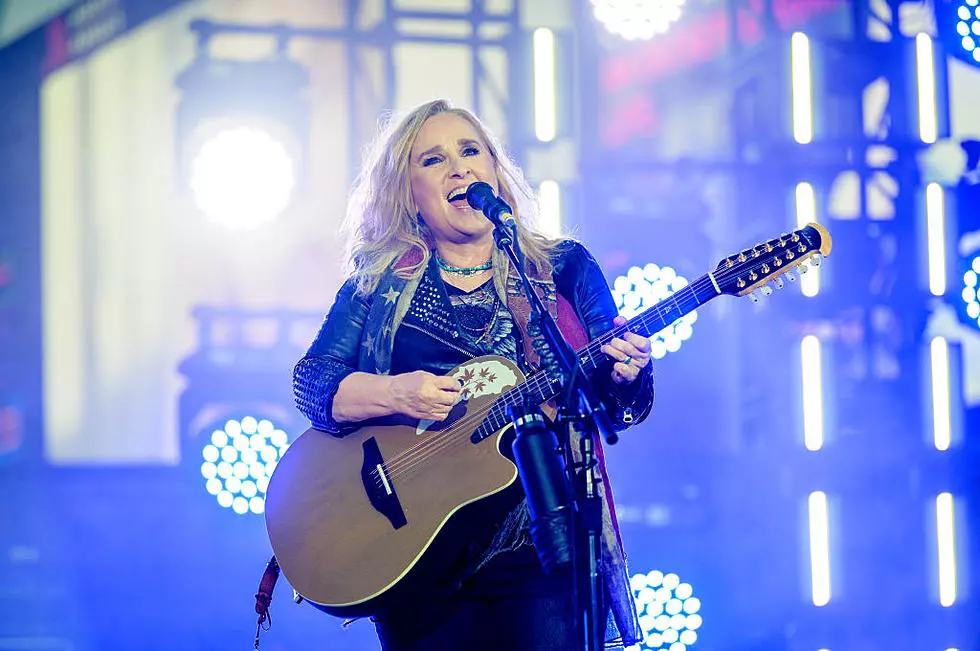
When Elton John Jammed With Leon Russell at Fillmore East
The 1970 world tour in support of Elton John's self-titled second LP introduced his electrifying stage show to fans across the U.S. An early highlight was John's August performance at the Troubadour Club in West Hollywood before a crowd that included Leon Russell, John's idol and a major influence.
"I copied Leon Russell, and that was it," John later told the Georgia Straight. "And the first time I ever met him, he was in the front row of the Troubadour. It was the second night we were there. I saw him there and my knees went zzzippp! … He invited me up to his house, and I thought he's going to invite me up there and tie me to a chair and whip me and say, 'This is how to play the piano!'"
They reconnected when John performed four shows on Nov. 20-21, 1970 at New York's Fillmore East, and something magical happened. Folk-rockers McKendree Spring opened the show, followed by John and then Russell, who topped the bill. Promoter Bill Graham booked John at Russell's suggestion.
“I’ve never worked for anybody who’s as professional as Bill Graham or his staff," John told Rolling Stone. "It’s the musician’s dream gig. If you don’t make it at the Fillmore West or the Fillmore East, no matter what the audience is like, you’ll never make it anywhere. Bands take it for granted they’re playing the Fillmore. They don’t think about the fact that they’re getting the best PA system, the best sound and the best lighting. The lighting is just incredible."
John was joined by Russell for a nine-minute-long jam following "Burn Down the Mission," with Russell on guitar. John later accompanied Russell during his encore of "Roll Away the Stone."
By then, Russell had become a fan. "I went out to watch one of [Elton's sets at the Fillmore East] and said, 'My career’s over. This guy is so much better than me,'" Russell told Reuters in 2010. "We had tried to get Elton for Shelter Records, but we missed him by a couple of weeks."
Listen to Elton John Jam With Leon Russell
Elton described it as "the most magical of times, because here was my idol accepting me." He couldn't get over "being a huge fan of someone like [Russell], and to have him accept me and kind of take me under his wing and be really fantastic to me the whole time," John told Spectacle in 2008. "It meant the whole world to me that someone could show me that generosity that you admired so much. It helped validate me by saying, 'Well, if he thinks I’m alright then I must be alright, because he’s my hero.'"
In the decades following that night at Fillmore East, John became a platinum-selling superstar while Russell found a rockier career path. He never reached the same celebrity status, despite a history of writing classics like "Delta Lady," "A Song for You," "This Masquerade" and "Tight Rope."
Then John asked Russell to collaborate on 2010's The Union. The album became Russell's first Top 5 Billboard hit in almost 40 years; a tour and TV appearances together followed. “Elton came and found me in the ditch on the side of the highway of life," Russell said back then, "and took me up to the high stages and treated me like a king."
Several months later, John welcomed Russell into the Rock & Roll Hall of Fame. "It was one of the greatest years in my life, both musically and personally," John said at the induction ceremony. Everything he'd hoped for while they were recording The Union had come true: "There's one thing I want for you," John told Russell. "I want people to acknowledge you for what you’ve done, to remember you for what you’ve written and what you’ve played on and for you to be proud again of what you’ve done — and I want you to be in the Rock & Roll Hall of Fame."
Russell died in sleep five years later.


